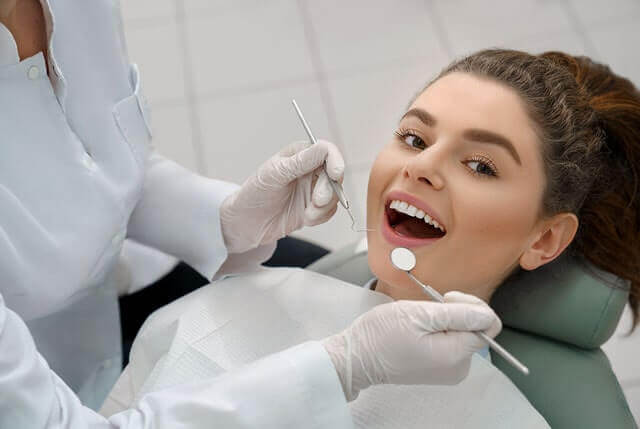Overbite Treatments Available With Your Orthodontist
An overbite can be the cause of many complications endured by patients seeking orthodontic care. According to this 2019 study, around two-thirds of US adults suffer from some type of malocclusions, including an overbite.
Here at Westwalk Orthodontic Group Norwalk, our orthodontics specialists have extensive experience helping patients realign their dental structures. Orthodontic treatment is an efficient method that helps correct alignment issues while avoiding invasive surgeries or tooth extractions if at all possible.
But, what is an overbite? What are the complications resulting from these malocclusions? What exactly are malocclusions? We hope this article will help you clear any doubts you have related to this common cause for orthodontic care.
A Bit of Background on Overbite Correction & Cost
We should start by reminding our readers that not all overbites are considered problematic. In fact, we expect patients with good dental health and near-perfect smiles to have a slight overbite. Norwalk Orthodontists try to achieve some ratios between the measure and positions of patient’s teeth considering their ethnicity, age, and gender.
Everyone’s smile is unique, and orthodontists make sure that their teeth and jaws’ alignment is not a factor contributing to dental health decay.
The idea is to help our patients achieve a proper alignment that minimizes the risk of premature tooth wear and dental hygiene concerns.
When Should I Be Worried About an Overbite and How Fix an Overbite with Braces?
In dental medicine, we have a technical name for the relation between your lower, upper teeth and the position of your jawbones. This “occlusion” should fit normal parameters if we want to make sure that your mouth is in as good a condition as possible. However, your upper jaw can be too forward or backward in relation to your lower jaw resulting in a “malocclusion.”
Orthodontists seek to solve these malocclusions without the need for invasive surgical procedures to avoid other problems.
Anyone should try to correct this issue as soon as possible. The different types of overbite, along with any other malocclusion, could be related to TMD. TMD stands for Temporomandibular Joint Disorder, and even if we still don’t know the exact causes of this disorder, we do know that it can result in much discomfort.
This orthodontic condition can result in jaw pain, constant headaches, contribute to sleep apnea, and speech difficulties from an early age.
So yes, if you suffer from a severe overbite, you should try to get help from a specialist as soon as possible.
Why Does Anyone Get an Overbite?
Unlike other orthodontic problems, we do not normally attribute any type of overbite to trauma or physical impacts following an accident.
More often than not, these dental disorders are the result of a patient’s genetics. This problem may also result from some bad habits like tongue-thrusting, a swallowing disorder where the patient pushes against their teeth with their tongue instead of leaving it at the roof of their mouth.
Mouth breathing, thumb sucking, and the use of a pacifier beyond infancy can also cause this jaw misalignment.
Which Orthodontic Treatment Is Available?
Our specialists, Dr. Steve and Dr. Gary can help you overcome your deep overbite without jaw surgeries. Orthodontia focuses on using various appliances that will pull and push your teeth into the right position. We realign teeth and jaws to achieve positive results.
To that end, specialists use appliances like traditional braces. You could ask about alternatives to traditional braces, such as Invisalign® clear aligners, but depending on the severity of your condition, your permanent teeth may require stronger tools or special attachments.
Everyone’s case will be different, but some treatments can take up to 16 months, as evidenced by this study. It would be best if you ask your orthodontist about the options available for your treatment. If there is a possibility to use it efficiently, you could try innovative solutions like clear aligners.
Still, regardless of your treatment choice, there’s one more detail you should keep in mind. Relapse.
Anyone who completes non-surgical treatments to improve the bite relation of their lower and upper teeth needs to consider that your dental structures could slip back into the wrong position. This is known as relapse.
To overcome that problem, orthodontists use a retainer. This additional appliance can be removable or fixed. The choice behind recommending either type of retainer is primarily dictated by patient compliance. We don’t want to see your effort go to waste. This set of retainers will help your teeth and jaws stay in position.
Consult With a Professional About a Treatment Plan
Make sure to ask your orthodontist about how to work towards a healthier smile. If you or your child suffer from an overbite, overjet, crossbite, or other types of malocclusions, consult with a dental health specialist to review your available treatment option.
The sooner you work on these issues, the sooner you will enjoy a beautiful and healthy smile.
Get in touch with our team over the phone at either of our locations serving Norwalk or Westport or follow this link to set an appointment online.
Our Norwalk Westwalk Orthodontics Group office is located 10-15 min away from the maritime aquarium at Norwalk, Stepping Stones Museum for Children, Lockwood-Mathews Mansion, Sheffield Island Ferry, Norwalk Historical Society Museum, and Mill Hill Park.

